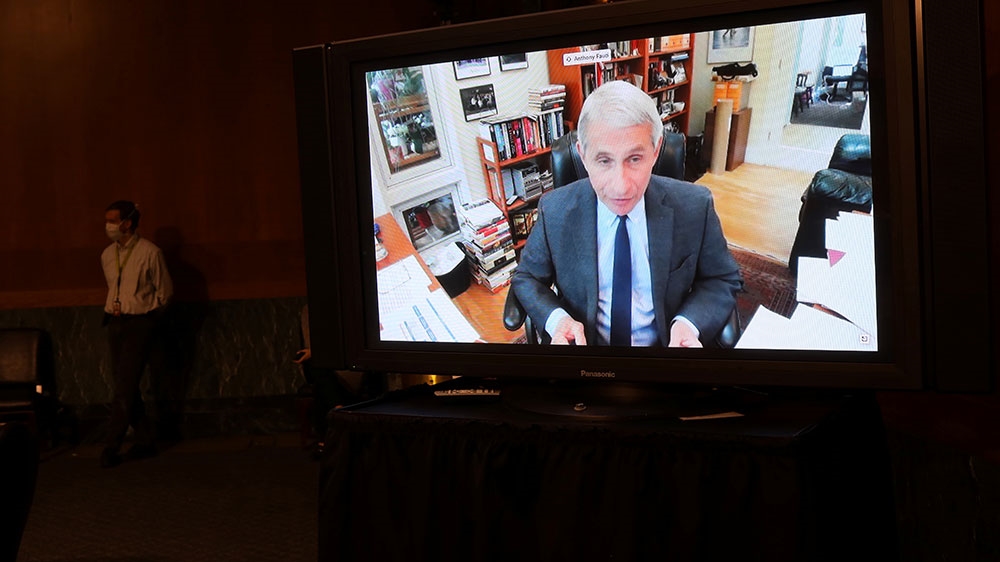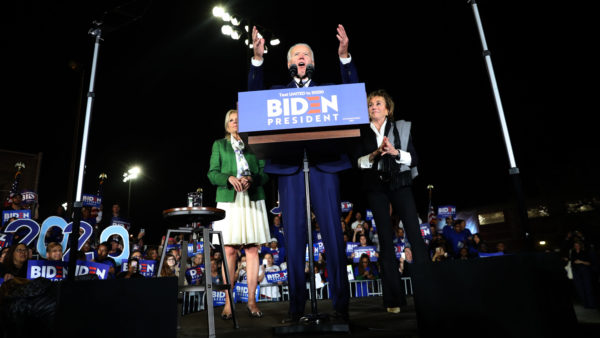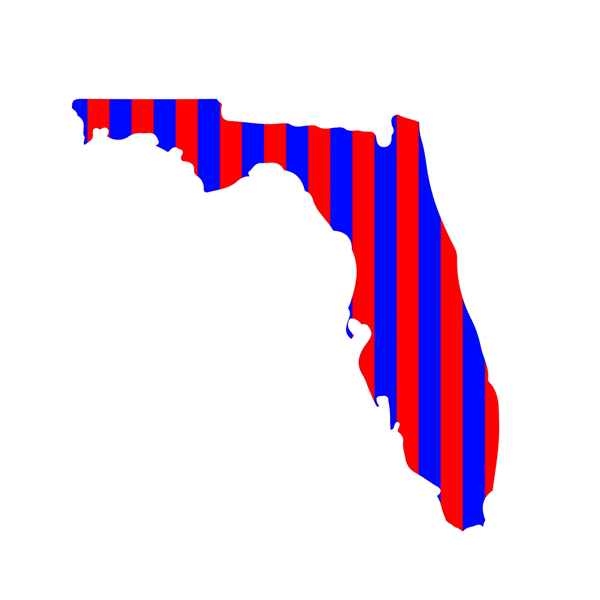Public health experts in the United States say President Donald Trump is downplaying science in his drive to reopen the US economy and risking lives by pushing governors to ease restrictions on public life.
“There is no question of what’s happening here, which is that the country is reopening too soon,” said Dr Leana Wen, an emergency physician and professor at George Washington University.
“There will be predictable consequences which are avoidable infections and preventable deaths,” Wen told Al Jazeera.
More:
Governors in all 50 US states have begun to ease stay-at-home restrictions, even though four states are still seeing increases in COVID-19, and 21 states have yet to record substantial declines. Many others like New York are seeing steady drops in infections but are still suffering large numbers of sick and dying people.
The result of a premature loosening of restrictions, medical doctors fear, will be new outbreaks of the coronavirus, prolonging the pandemic in the world’s hardest-hit nation.
“The minute we start speeding all this up we get ahead of the science and the virus gets ahead of us,” said Boris Lushniak, dean of the University of Maryland School of Public Health.
“Our big fear factor – from a public health perspective is – if you move things too quickly, then the chances are quite high that you will regress and when you regress, you will regret having moved that quickly,” Lushniak told Al Jazeera.
Facing re-election in less than five months, President Trump and his allies in Congress, cheered on by conservative media, have been pushing for a rapid reopening of the US economy even if it means more deaths.
Speaking to an audience of workers at a medical supply distribution centre in Pennsylvania on Thursday, Trump said US doctors and nurses are “running into death just like soldiers run into bullets”.
“It’s incredible to see. It’s a beautiful thing to see. But I really call them ‘warriors’. We are all warriors. Everyone in our country is a warrior,” Trump said.
Pennsylvania is a state Trump likely needs to win again when Americans vote in November. The president pledged to get the US economy moving again by using federal financing to manufacture medical protective equipment and ventilators.
“I understand the president. He is a politician I won’t pass judgement on that. But I don’t agree with what he is doing at all,” said Dr Georges Benjamin, executive director of the American Public Health Association.
“As a leader, the administration needs to provide a whole lot more leadership than it has and I think that’s a fact and history will prove me right on that point,” Benjamin told Al Jazeera.
The US is only just beginning to get adequate testing capacity in place with about 250,000 tests a day and a 10 percent positive rate, a key threshold identified by the World Health Organization. Contact tracing and quarantining capabilities are not ready, public health experts have said.
Dr Anthony Fauci, the top infectious disease scientist in the US government, told Congress on Tuesday that prematurely lifting lockdowns could lead to new outbreaks.
“There is a real risk that you will trigger an outbreak that you may not be able to control,” Fauci told a Senate committee, comments that immediately drew fire from Republicans siding with Trump in the reopening debate.
“We ought to have a little bit of humility in our belief we know what’s best for the economy,” said Republican US Senator Rand Paul. “Dr Fauci, I don’t think you are the end-all. I don’t think you are the one person who gets to make a decision.”
The criticism was echoed in conservative media. Fox News television host Tucker Carlson criticised Fauci for “a lot of wrong predictions” and “buffoon-level stuff”.
Trump waded into the fray shortly after Fauci’s testimony, rebuked Fauci and said his warning about the danger of reopening the economy was “not an acceptable answer”.
The contest between conservatives and scientists is a quintessentially American political fault line, said Keith Humphreys, a professor at the Stanford School of Medicine.
“How much freedom should you have to give up for the common good? That’s what we’ve been fighting about for hundreds of years,” Humphreys told Al Jazeera.
|
Whistle-blower: US could face ‘darkest winter in modern history’ (2:59) |
To be sure, there are parts of the country – states like Tennessee, and cities like San Francisco and Seattle – that have done well in controlling the virus, the experts said.
In Tennessee, the governor has allowed restaurants, salons and barber shops to reopen in areas outside the populous city of Nashville. Music venues and bars are to remain closed.
California, the nation’s most populous state, is moving to a second phase of measured reopening as the governor’s office tracks key data indicators signalling when to ease restrictions.
Elsewhere, the contest between reopening and keeping people safe remains as much a political struggle as a public health one.
In Wisconsin, the conservative-dominated state Supreme Court struck down the Democratic governor’s stay-at-home order, a ruling that lifted all restrictions on businesses and gatherings and sent residents in that state scurrying out to bars and restaurants within hours.
Trump won Wisconsin narrowly in 2016 and his prospects in November could well depend on how the reopening gamble works out. Trump’s son, Donald Trump Jr, was among the many US conservatives who cheered the decision.
In Georgia, the Republican governor allowed businesses, restaurants, shopping malls and movie theatres to reopen with limits. But consumer demand has remained light and virus infections have not declined.
“That concerns me,” said Robert Bednarczyk, a professor at the Rollins School of Public Health at Emory University in Atlanta.
In two weeks, given the virus’s 14-day incubation period, Georgia could be “seeing those numbers coming back”, Bednarczyk told Al Jazeera.


